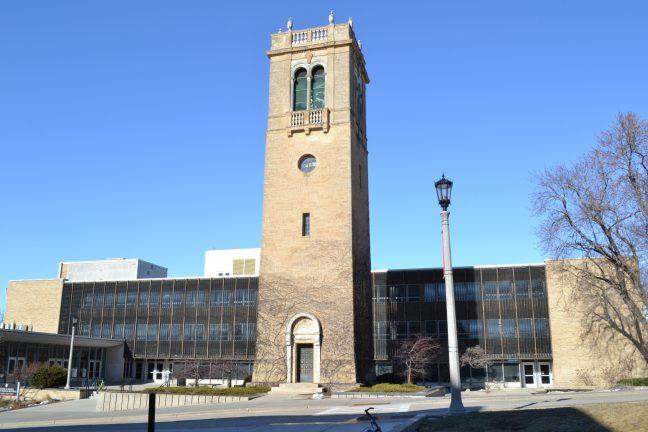A new report compiled by University of Wisconsin graduate students reveals historic and current racial disparities in the institution’s Department of Political Science faculty.
On Wednesday, five UW political science PhD candidates released a report on Twitter detailing faculty diversity in the UW Department of Political Science. Using publicly available data, the graduate students found there has not been more than one Black faculty member in any given year since 1970.
While the overwhelming majority of white male faculty has decreased over the years, the report said most of the change in the faculty’s makeup can be attributed to the increased hiring of white female faculty. The representation of people of color in faculty remains stagnant and lagging behind, according to one of the authors and PhD candidate Anna Meier.
“There’s been a lot of conversations in UW Poli Sci over the last couple of years about diversity in our department, both among faculty and among graduate students,” Meier said. “But we haven’t really seen much action in that regard, or much change, among these conversations, which is frustrating as a graduate student.”
The total number of Black, Indigenous and people of color has risen throughout the years. But the report says this year, Black people only represented 3% of the department’s faculty — the highest percent of Black faculty in the department’s history, but still only representing a single Black faculty member.
Meier and four other students decided to tag onto the #BlackintheIvory Twitter campaign encouraging Black graduate students and scholars to share their experiences of discrimination and exclusion in academia. Meier said while the results themselves are not surprising, the greater shock is how long the current disparities have persisted in the hiring and retention of BIPOC faculty.
“We are generally an overwhelmingly white campus, both among faculty and the student body,” Meier said. “That’s something we all sort of know, but seeing it in front of us on paper in hard numbers really drives it home … I’m white, so I can get away with not thinking about this everyday because it doesn’t affect me. I see myself represented in faculty, but that’s not true for every student.”
In an email statement to the Badger Herald, UW Political Science Department Chair John Zumbrunnen said the department will continue to make diversity a priority once they are able to hire again. At the same time, Zumbrunnen recognizes there is immediate work to do.
Zumbrunnen said the department is working to provide a curriculum that dives into topics of race and diversity, and to offer training to support an inclusive instructional design and engage the campus community in meaningful conversations about power and privilege in the world.
“I very much appreciate the effort, thoroughness and concern for our department reflected in the report,” Zumbrunnen said in the statement. “The report is right: a more diverse faculty should be — and is — a goal for our department, and we must be sure that we provide an inclusive and professional workplace where colleagues can come and spend their careers.”
The report concluded with several recommendations to the department, including a call to hire at least two Black tenure-track faculty members by 2025. The recommendations also ask for a commitment in writing to host a graduate level seminar on race and ethnicity once every other year starting in 2022.
Meier said descriptive representation is crucial to including necessary perspectives in research and in classrooms. More broadly, Meier said the authors of the report hope to increase transparency on diversity issues and efforts around campus to ensure the institution is making changes.
“The real aim here is to be transparent and be able to hold people accountable,” Meier said. “It’s to let students know that this isn’t just cheap talk but that people are actually doing things.”


